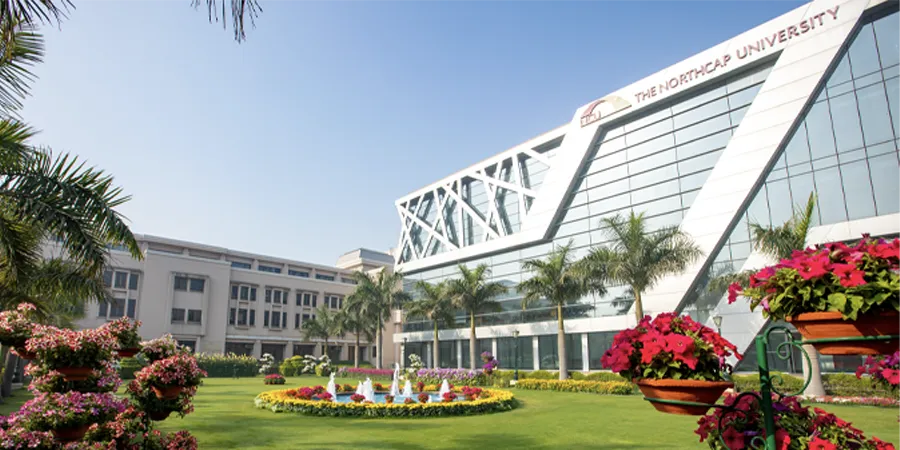Integration of multi-disciplinary skills for holistic development of students in higher education institutions


Integration of multidisciplinary engineering skills is paramount for fostering the holistic development of students in higher education. Today’s engineering challenges demand a comprehensive approach that goes beyond traditional silos of knowledge. By incorporating elements from various engineering disciplines such as mechanical, electrical, and computer science, students can develop a more versatile skill set that prepares them for the dynamic demands of the industry. For instance, a project that involves designing a renewable energy system requires knowledge of mechanical principles for the physical components, electrical principles for power generation and distribution, and computer science for control and monitoring systems. Through collaborative projects and interdisciplinary coursework, students learn not only technical skills but also critical thinking, problem-solving, and effective communication across disciplines. This holistic approach not only enhances students’ employability but also cultivates a mindset of innovation and adaptability, essential for addressing the complex challenges of the future engineering landscape. The integration of multidisciplinary skills in higher education is crucial for preparing students for the complex challenges they will face in the competitive landscape of jobs.
The NorthCap University believes in the multi-disciplinary approach and integrates various domains through choice-based electives for the holistic development of students. NCU offers multi-disciplinary courses from the domain of mechanical, electronics, electrical, civil, management, applied sciences, social sciences, law, foreign languages and innovation to the students and students are free to select their choices as per their interest. The NCU follows the best practices for curriculum development by involving industry and academia eminent personalities. The needs of all the stakeholders are kept in mind to design the schemes and the changes as per market trends are incorporated in the curriculum.
The various steps NCU has well-thought-out and integrated in the curriculum for incorporating the multi-disciplinary skills for holistic development of the students are:
- Project-Based Learning (PBL): NCU believes in hands-on training of students and experiential learning. The Project Based Learning encourages students to work collaboratively on real-world problems, integrating skills from multiple disciplines [1].
- Interdisciplinary Courses: The holistic development can be achieved through the multi-disciplinary skills acquired during the academic journey of students. NCU focuses on interdisciplinary courses from other streams as open electives to the students for their personal and professional development. NCU develops and integrates courses that combine concepts from different disciplines, fostering critical thinking and problem-solving abilities [2].
- Experiential Learning: NCU encourages students to apply for internships, fieldwork, and study abroad programs to provide hands-on experiences that require the application of various skills. Through the MoU’s signed with various industrial giants and international academic institutions, NCU provides a robust platform for integrating experiential learning through live industry/academia projects [3].
- Team Projects: The curriculum at NCU integrates the minor and major projects which require diverse skills such as research, communication, and technical expertise, fostering teamwork and collaboration. This is the important ingredient for holistic education and multi-skilling development [4].
- Innovative Assessment Methods: NCU integrates the use of assessment methods like e-portfolios, presentations, and debates that evaluate students’ ability to integrate knowledge from different disciplines. The application of digital teaching and learning is well established route at NCU for enhanced teaching learning experience [5].
- Faculty Collaboration: Encourage collaboration among faculty members from different departments to design interdisciplinary courses and research projects. NCU has already focused on imparting inter-disciplinary education and the department of Multidisciplinary Engineering (MDE) exists at NCU for the upskilling of students in various skills [6].
- Technology Integration: Utilize technology platforms and tools that facilitate interdisciplinary collaboration and communication among students and faculty. NCu offers technology integration to academics through Learning Management System, online quizzes, online assignment analysis etc. for holistic teaching and learning. NCU recently offered online and distance learning programmes which are UGC approved and helps in blending learning through MOOCS [7].
The overview for the holistic development of students through the integration of multi-disciplinary skills is presented in figure below:
Fig. 1: Initiatives at NCU for integrating multi-disciplinary skills among students for holistic development (authors image)
References:
[1] JW, Thomas. “A Review of research on project based learning.” Journal The Autodesk Foundation 1, no. 1 (2000): 111.
[2] Klein, Julie Thompson. Crossing boundaries: Knowledge, disciplinarities, and interdisciplinarity. University of Virginia Press, 1996.
[3] Kolb, David A. Experiential learning: Experience as the source of learning and development. FT press, 2014.
[4] Ruder, Phil, Mark H. Maier, and Scott P. Simkins. “Getting started with team-based learning (TBL): An introduction.” The Journal of Economic Education 52, no. 3 (2021): 220-230.
[5] Sabzwari, Saniya. “Rethinking assessment in medical education in the time of COVID-19.” MedEdPublish 9, no. 80 (2020): 80.
[6] Harris, Bette Ann. “Interdisciplinary education: What, why, and when?.” Journal of Physical Therapy Education 20, no. 2 (2006): 3-8.
[7] Garrison, D. Randy, and Norman D. Vaughan. Blended learning in higher education: Framework, principles, and guidelines. John Wiley & Sons, 2008.
Authored By
Dr. Satnam Singh
Associate Professor, Multi-Disciplinary Engineering Department
+91 8059001188
satnamsingh@ncuindia.edu
The NorthCap University
